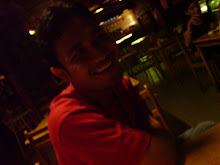Religious fundamentalism has assumed global dimensions today, and many conflicts raging in different countries are informed by arguments of right-wing religious groups. A key player in global politics today is the American evangelical Christian lobby, now well-ensconced in the corridors of power in the United States. The American President George Bush is said to be an evangelical Christian, as are many of his advisors, and the evangelicals now play a crucial role in shaping American domestic as well as external policies.
This fascinating book provides a broad picture of the history and politics of American Christian fundamentalism, focusing, in particular, on its implications for Muslim countries. It begins with a general introduction to the beliefs and variety of American Christian fundamentalist groups, tracing their emergence from the early years of the twentieth century. Zakaullah sees this as, in part, a reaction to liberal trends in Christian thought, and to the challenges posed by scientific thinking and the growing secularization of society. It was, in addition, a response to growing waves of immigration from non-Protestant and non-white countries. Late nineteenth and early twentieth century American evangelists also saw themselves as crusading against what they regarded as growing immorality and licentiousness. In the face of these challenges to their faith, they propagated an extremely literalist understanding of the Bible. Their version of Christianity alone was true, they believed, and the world needed to be won over to it to be saved. There was no other path to salvation, they insisted, in true fundamentalist fashion.
Till the 1960s, Zakaullah writes, the evangelists stayed aloof from overt involvement in American politics, seeking to influence public opinion by establishing seminaries, universities, publishing houses, and radio and television stations. However, a chain of events soon forced them to change their tactics. Of particular importance in this regard was a series judgments of the American courts, including those related to de-segregation of schools, proscribing Christian instruction in state-funded schools, and legalizing abortion and gay rights, all of which the evangelists were fiercely opposed to. As defenders of white privilege and American global hegemony, the evangelists fervently supported the American government in its invasion of Vietnam, portraying American imperialism as Christian defence against godless communism. The time had now come, so the evangelists came to believe, to have their own man in the White House.
Zakaullah then goes on to trace the growing links between leading Christian fundamentalist leaders, including such big-wigs as the televangelists Billy Graham, Jerry Falwell and Pat Robertson, and the American political establishment. He shows how they managed to infiltrate into the top corridors of power, despite the constitutional separation of religion and state, and how they have now come to exercise a crucial, if not dominant, influence in decision making in the White House. Zakaullah also discusses, although only in passing, the close nexus between leading evangelists and American capitalists and large media houses today.
The implications of the rise of American Christian fundamentalism are truly frightening, given the influence it commands in key sectors of American officialdom. American Christian fundamentalists, Zakaullah writes, are impelled by a militaristic theology rooted in the millenarian expectations of the Book of Revelations. Jesus, they believe, will soon be returning to the world, and his arrival will be accompanied by a global war between "true" Christians and "unbelievers". In the meantime, "true" Christians are expected to devote themselves to spread Christianity, for all other religions are said to be false or Satanic. Consequently, American evangelists are today fervent missionaries, and are active in promoting their brand of Christianity all over the world, including in many Muslim countries, often using aid as a bait and sometimes following in the footsteps of American soldiers, as in Iraq and Afghanistan.
American evangelists believe that Jesus is shortly to return to earth to establish his kingdom, in the course of which the Jews would gather in Palestine, where Jesus would establish his capital. This explains, Zakaullah tells us, the evangelists? unstinting support to Israel and its brutal suppression of the Palestinians, and their fervent backing of America's invasion of Iraq and Afghanistan and its 'war on terror'. Zakaullah quotes several leading American evangelists as describing Islam and Muslims in lurid colours and branding it as irredeemably 'anti-Christian'. Not surprisingly, he writes, they have been among the most fierce backers of America's imperialist misadventures that many Muslims, rightly or wrongly, see as directed against them. American imperialism is thus sought to be given a suitable "Christian" sanction, and is presented as working to usher in Jesus' triumphant return to the world. War and bloodshed on an unimaginable scale, not peace and reconciliation, American Christian fundamentalists seem to believe, will herald the eventual establishment of the Kingdom of God, the rule of pious Christians all over the globe.
Zakaullah thus rightly argues that American Christian evangelists pose a grave danger to global security, particularly now since they are closely linked to top American leaders. He, however, reminds his readers that the evangelists, although commanding massive support in America, do not speak for all Americans, or for all Christians for that matter. He appeals for Muslim intellectuals to seek to dialogue with American, including Christian, leaders and activists to promote better understanding between Christians and Muslims so as to avoid the 'clash of civilizations' from turning into a self-fulfilling prophecy. For this, he says, an urgent task is to critique the politics of fundamentalism among both Christians as well as Muslims, and evolve alternate ways of understanding religion and religious identity, rooted in a firm commitment to justice and respect religious pluralism.
Note: The book was written by Muhammad Ariff Zakaullah and published in 2004 by The Other Press.
Subscribe to:
Post Comments (Atom)


2 comments:
do u have this book?
is it available at any stores?
yes i have the book. n it's available at kinokuniya.
Post a Comment